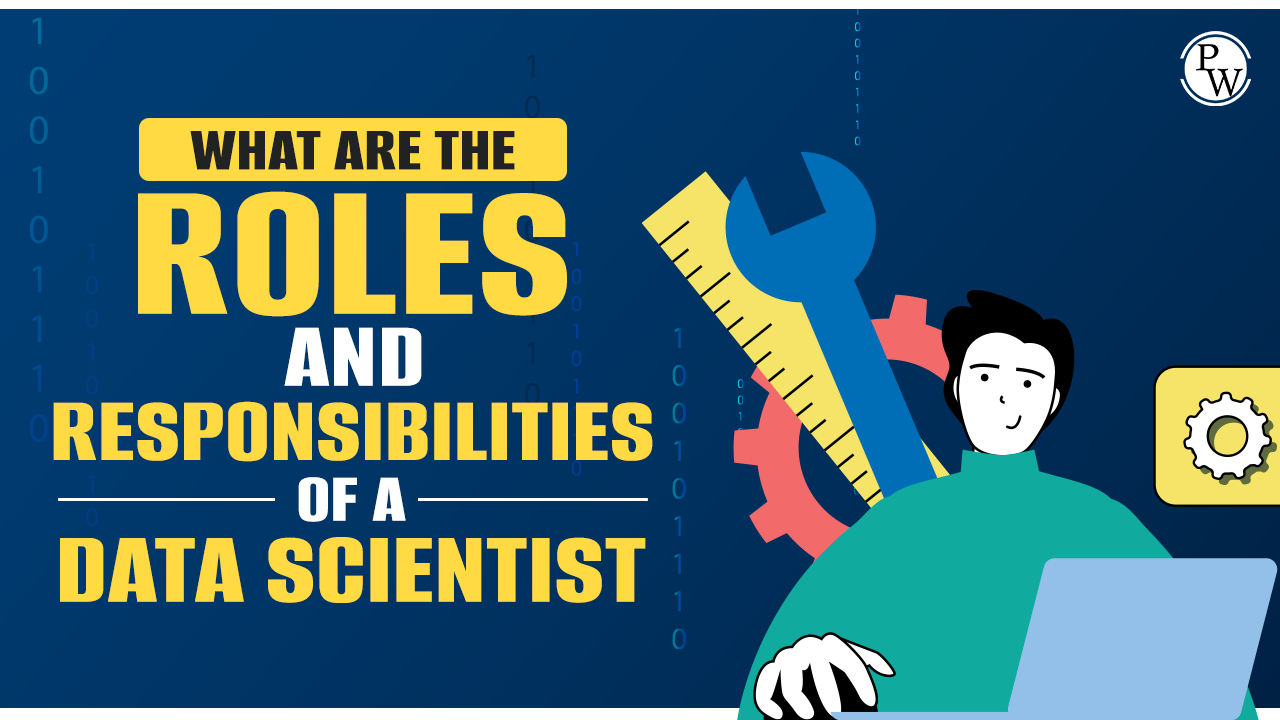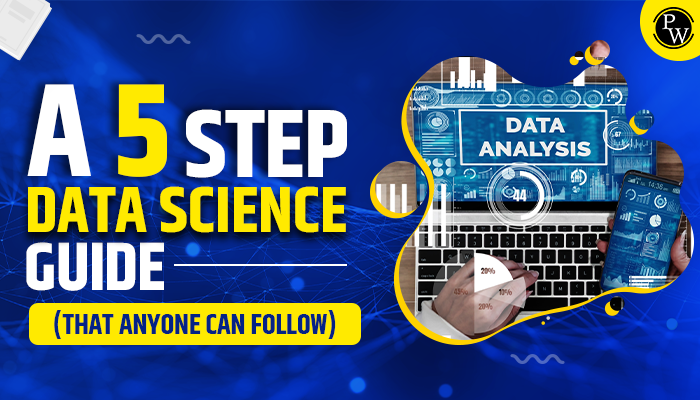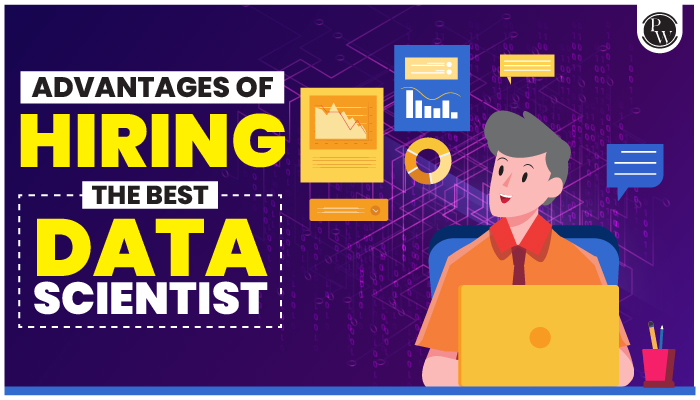Data Scientist Skills and Responsibilities: In the era of vast data and technological advancement, the role of a data scientist is pivotal. They are versatile professionals who amalgamate expertise in multiple domains to derive meaningful insights and forecasts from data. They’re often dubbed “data wizards” due to their knack for converting raw, unorganised data into valuable information guiding informed decisions. If you want to give your data science career a jump start, a Full-Stack Data Science Course is highly recommended. In this article, we’ll talk about the top data scientist skills and responsibilities that employers look for in 2023.
Who Is a Data Scientist?

Data scientists possess analytical acumen, excelling in data collection, data purification, data analysis, machine learning, and data presentation. Their primary objective is to employ data in resolving intricate problems and bestowing a competitive edge upon organisations.
Put simply, a data scientist is akin to a detective, sifting through data to unveil concealed patterns, correlations, and trends. They can operate with both structured data, like databases, and unstructured data, such as text and images, rendering them adaptable problem solvers across diverse sectors.
Importance of Data in the Modern World
In Today’s World, the Significance of Data is immense. We reside in an era where data proliferates rapidly from various sources like social media, IoT devices, e-commerce platforms, and more. This data deluge furnishes both opportunities and obstacles for businesses and organisations.
Data serves as the foundational material steering decision-making, business strategies, and innovation. It provides insights into customer behaviour, market trends, operational efficiency, and more. To decipher this data, companies necessitate adept professionals capable of navigating the vast sea of information and extracting valuable insights. Data scientists are the linchpin for unlocking the latent potential concealed in this data.
The Growing Demand for Data Scientists
The demand for data scientists has witnessed a surge in recent times, and this trend is poised to endure. The rationale behind this escalating demand lies in the worth that data-driven insights can confer upon organisations. Companies are increasingly realising that to sustain competitiveness and relevance, they must harness the potency of data.
Data scientists are not just sought after in the technology and finance sectors but also in healthcare, marketing, sports analytics, and nearly every industry reliant on data for informed decision-making. Consequently, the job market for data scientists is fiercely competitive, and the remuneration for proficient experts in this field is often quite lucrative.
Data scientists assume pivotal roles within organisations. They draw valuable insights from data, categorising their responsibilities into fundamental roles in the data science workflow.
The Core Roles of a Data Scientist
Data Collection and Cleaning
- Data Gathering: Data scientists identify and acquire relevant data from various sources, such as databases, APIs, web scraping, or IoT devices. They ensure organised data collection.
- Data Preparation: Raw data is often unstructured. Data scientists clean and preprocess it, dealing with missing values, outliers, and transforming it for analysis. Clean data is crucial for high-quality insights and models.
Data Analysis and Exploration
- Exploring Data: EDA involves visually and statistically examining data for patterns, trends, and anomalies. Tools like Pandas, Matplotlib, and Seaborn help create summary statistics, visualisations, and distributions for understanding the data.
- Visualizing Data: Data scientists use charts, graphs, and interactive visualisations for effective communication of complex insights, using tools like Tableau, Plotly, and D3.js.
Model Development
- Algorithm Selection: Data scientists pick the right machine learning or statistical algorithms based on their deep understanding of the problem and algorithm strengths and weaknesses.
- Building and Training Models: After algorithm selection, they construct and train predictive models using techniques like cross-validation and parameter fine-tuning.
Model Evaluation
- Assessing Model Performance: Data scientists measure model performance with metrics like accuracy, precision, recall, F1-score, and ROC-AUC, tailored to the problem type.
- Improving Models: Model evaluation identifies areas for enhancement. Data scientists iterate on the model, making adjustments, adding features, or trying different algorithms for accuracy and reliability.
Model Deployment
- Bringing Models to Production: Data scientists move models from development to production with collaboration from software engineers and DevOps teams.
- Ensuring Scalability and Reliability: Deployed models should handle real-world workloads, maintain performance, and be updated as needed, with monitoring for model drift.
In summary, data scientists are versatile professionals who manage the full process of converting raw data into actionable insights. They collect, clean, analyse, model, and deploy data-driven solutions while continuously refining their methods to deliver business value.
Also check: Data Scientist Resume
Data Scientist Skills and Responsibilities
Data scientists are essential in data-driven companies. They have various responsibilities, covering technical, strategic, and interpersonal areas. Here are some data scientist skills and responsibilities:
Business Understanding
Grasping the Problem Domain
Data scientists deeply immerse themselves in the specific issue they are addressing. To create data-based solutions, they must fully comprehend the complexities, challenges, and opportunities within that domain. This involves extensive research, collaboration with experts, and asking relevant questions.
Aligning Projects with Business Goals
Successful data scientists ensure that their work aligns with the overarching business objectives. They bridge the gap between technical analysis and the larger strategic vision. By understanding the broader goals, they can design data projects that have a measurable impact and provide actionable insights.
Data Engineering
Building Data Infrastructure
Data scientists work closely with data engineers to establish robust data infrastructure. This includes selecting suitable databases and data storage solutions, ensuring data security, and configuring efficient data retrieval and processing systems.
Creating Data Pipelines
Data pipelines are crucial for data-driven organisations. Data scientists collaborate with data engineers to develop, maintain, and optimise these pipelines. They may use tools like Apache Kafka, Apache Airflow, or ETL processes to ensure data is collected, cleaned, and prepared for analysis.
Feature Engineering
Crafting Relevant Features for Modeling
Feature engineering is a blend of art and science. Data scientists extract, select, and shape features from raw data. This entails identifying which data attributes are relevant to the problem and transforming them to capture meaningful information. It often requires a deep understanding of the domain.
Selecting Features and Reducing Complexity
Not all features are equally important, and handling high-dimensional data can lead to overfitting. Data scientists use techniques like feature selection and dimensionality reduction to focus on the most informative attributes while simplifying the model.
Collaboration
Collaborating with Diverse Teams
Data science projects typically involve working with various teams, including business analysts, domain experts, data engineers, and software developers. Effective teamwork is crucial to align technical work with the organisation’s objectives.
Sharing Findings and Insights
Data scientists not only uncover patterns and insights but also need to communicate these findings effectively. This involves data visualisation, report generation, and telling a data-driven story to influence decision-making across different departments.
Continuous Learning
Staying Current with Tools and Methods
The field of data science is dynamic, with new tools, libraries, and methods constantly emerging. Data scientists need to invest time in ongoing education through courses, workshops, and staying updated with cutting-edge techniques and tools.
Keeping Informed about Industry Trends
Being aware of broader industry trends, including ethical considerations, responsible AI, and regulatory changes, is crucial. Data scientists must stay vigilant about industry-specific standards and guidelines, especially in fields like artificial intelligence and machine learning.
Tools and Techniques Used By Data Scientists
Data scientists rely on a multitude of tools and technologies for efficient and effective work. These tools facilitate data collection, analysis, insights extraction, machine learning model construction, and solution deployment. Let’s delve into key tools and technologies frequently used by data scientists.
Programming Languages
- Python: The primary choice in data science, Python boasts a vast array of libraries and frameworks for data manipulation, analysis, and machine learning. Libraries like NumPy, Pandas, and Scikit-Learn make it indispensable.
- R: Tailored for statistical analysis and data visualisation, R stands out with its statistical packages and graphical capabilities.
Data Analysis and Visualization
- Pandas: A vital Python library for data manipulation, including cleaning, transformation, and aggregation.
- Matplotlib and Seaborn: Matplotlib, a popular Python library, excels in creating various visualisations, and Seaborn, built upon Matplotlib, offers a high-level interface for attractive statistical graphics.
Machine Learning Libraries
- Scikit-Learn: This Python library provides a diverse range of machine learning algorithms, encompassing classification, regression, clustering, and model selection and evaluation tools.
- TensorFlow and PyTorch: Crucial for deep learning, these frameworks are employed for tasks like image recognition, natural language processing, and reinforcement learning.
Big Data and Cloud Services
- Hadoop: To manage large datasets, data scientists may utilise Hadoop, an open-source framework for distributed storage and processing.
- AWS, GCP, and Azure: Cloud platforms such as Amazon Web Services, Google Cloud Platform, and Microsoft Azure offer scalability and a plethora of data processing and machine learning services.
Data Science Platforms
- Jupyter Notebooks: These web-based environments enable data scientists to code, visualise data, and document their work interactively, commonly used for exploratory data analysis.
- Anaconda: A data science platform encompassing essential Python packages and libraries, simplifying the setup and management of data science environments.
Version Control
- Git and GitHub: Essential for code tracking, collaboration, and project version management, with Git serving as a distributed version control system and GitHub as a popular platform for code hosting and sharing.
These tools and technologies compose the core toolkit of data scientists. In practice, data scientists often blend elements from each category to tackle specific data-related challenges. Staying abreast of the latest developments in these tools is vital for success in the data science field.
Also read: Data Scientist Internship Opportunities
Challenges Encountered by Data Scientists
Data scientists hold a vital role in extracting valuable insights from data. However, they face several hurdles. It is crucial to understand these challenges, both for those considering a career in data science and for organisations seeking to maximise the effectiveness of their data science teams. Here, we explore some of the primary difficulties faced by data scientists:
Data Quality Concerns
- Inaccurate and Incomplete Data: Data isn’t always perfect. In real-world situations, you often encounter missing values, unusual data points, and inaccuracies. Data scientists must create strategies to manage missing data, detect and address unusual data points, and ensure data quality.
- Data Consistency: Inconsistencies in data format and structure can present significant problems. Data may originate from various sources, and maintaining consistent data representation is essential for accurate analysis.
Model Interpretation
- Black Box Models: Many advanced machine learning models, like deep neural networks, are seen as “black box” models due to their complexity. Understanding why a model makes a specific prediction can be vital, particularly in fields where transparency and interpretability are necessary, such as healthcare or finance.
- Explainability: Data scientists must convey their models and predictions to stakeholders, including non-technical audiences. This can be challenging when dealing with complex models.
Ethical Concerns and Bias
- Bias in Data: Data can mirror real-world biases, potentially leading to biassed models. Data scientists must be aware of and rectify biases in training data to prevent discriminatory or unfair outcomes.
- Ethical Dilemmas: Data scientists often confront ethical considerations related to data usage, particularly in areas like AI ethics and privacy. Decisions regarding data collection, utilisation, and model deployment demand careful ethical deliberation.
Scalability and Handling Big Data
- Large Datasets: Due to the abundant data available, data scientists often deal with enormous datasets that strain computing resources. They rely on distributed data processing tools like Hadoop and Spark.
- Scalability Challenges: Guaranteeing that models and data processing pipelines can handle large-scale data needs is an ongoing challenge. This entails optimising code, utilising cloud resources, and ensuring efficient parallel processing.
Adapting to Rapid Technological Changes:
- Technological Advancement: The realm of data science is in perpetual evolution. New tools, libraries, and techniques are frequently introduced. Data scientists must stay updated to remain effective and competitive.
- Continuous Learning: In data science, ongoing learning is vital. Data scientists must consistently enhance their skills and adapt to changing trends in machine learning, data engineering, and related fields.
Navigating these challenges forms an integral part of a data scientist’s role. It necessitates a blend of technical proficiency, critical thinking, and adaptability. Data scientists must not only cultivate their analytical and modelling skills but also develop strong problem-solving and communication abilities to effectively overcome these obstacles. Organisations can also bolster their data science teams by offering access to pertinent training and resources, endorsing a culture of data ethics, and fostering an environment that champions innovation and learning.
Also check: Data Scientist Course Syllabus
Conclusion
There are various data scientist skills and responsibilities that the top data scientists have. They bridge data and decision-making, driving innovation across sectors. Data science offers promising career opportunities for those who keep learning. However, aspiring or experienced data scientists should embrace challenges, collaborate, and understand their role in shaping a data-driven future for society.
Looking for a job as a data scientist? The PW Skills Full Stack Data Science Pro Course can help you land your dream job. Our job assurance program guarantees interview opportunities with top product-based companies, MNCs, and start-ups. Enrol today and start your journey to becoming a successful data scientist!
Data Scientist Skills and Responsibilities FAQs
What is the biggest challenge in becoming a data scientist?
Keeping up with the latest developments and staying current with technology is a significant challenge for aspiring data scientists.
How can data scientists embrace challenges in their work?
Data scientists can embrace challenges by approaching them as opportunities to learn, innovate, and grow.
What are the key responsibilities of a seasoned data scientist?
Seasoned data scientists take on leadership roles and mentor others, sharing their expertise and experience.
How does collaboration with cross-functional teams impact the work of data scientists?
Collaboration with cross-functional teams enhances the quality of data analysis and the relevance of insights in various industries.
Can data scientists influence the efficiency of an organisation?
Data scientists play a vital role in driving efficiency across various sectors by optimising processes and making data-informed decisions.
Why is data-driven decision-making important for businesses?
Data-driven decisions are based on evidence, leading to better outcomes and more efficient operations for businesses.
What are the emerging trends in data science?
Emerging trends in data science include the use of artificial intelligence, machine learning, and big data analytics for more advanced insights.
How can data scientists contribute to solving complex problems?
Data scientists use advanced analytical techniques to dissect complex problems and offer innovative solutions.
What is the role of data scientists in shaping the future of technology?
Data scientists drive innovation and shape the future of technology by applying data insights to develop new solutions and products.
How does lifelong learning benefit data scientists?
Lifelong learning keeps data scientists up-to-date with the latest tools and techniques, making them more effective in their roles.




